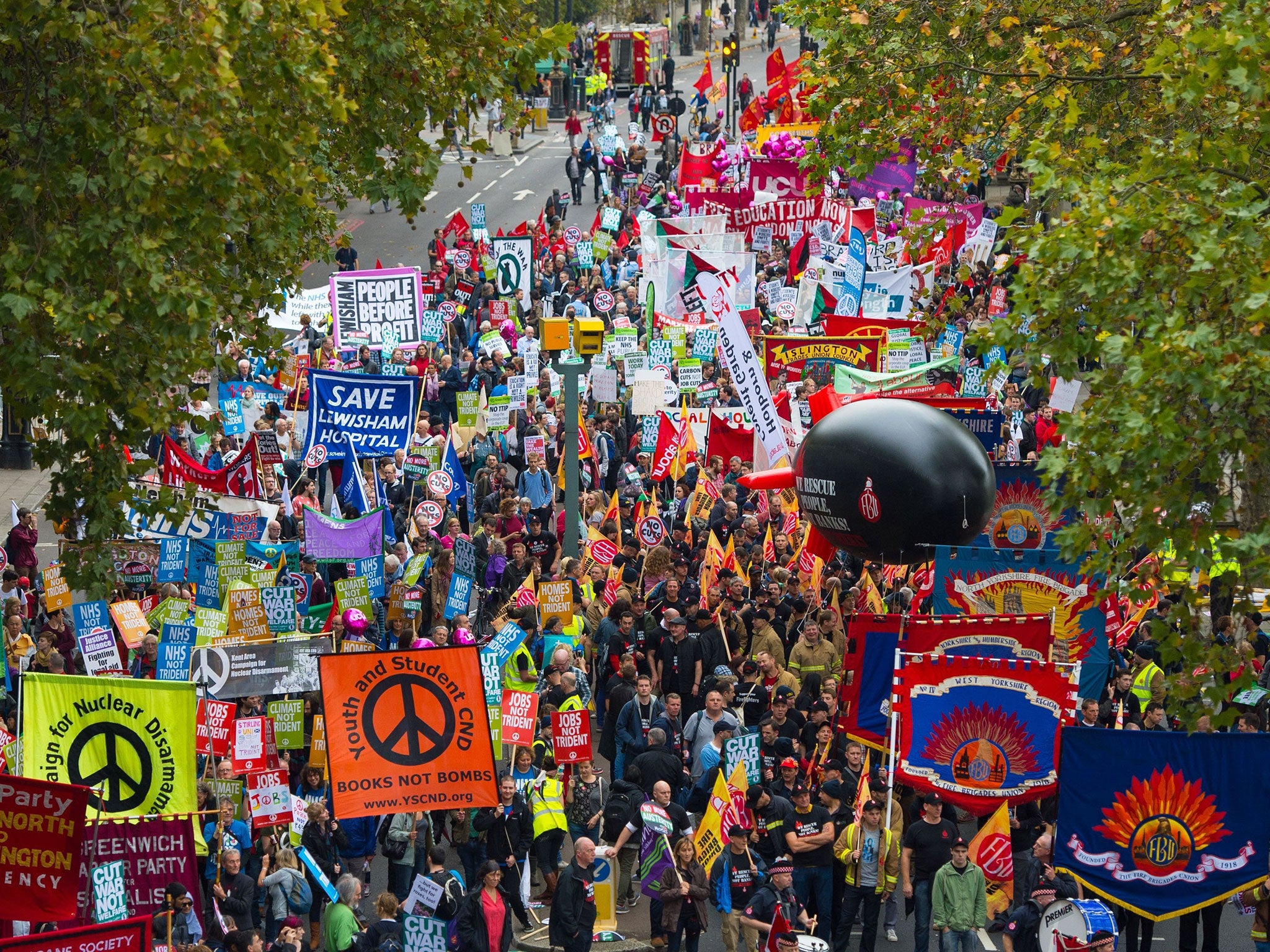Conservatives to 'effectively end the right to strike' in the public sector, union leader says
Proposals are part of a raft of measures that would curb the powers of trade unions

Public sector workers in key sectors such as health, education and transport will only be able to strike if a ballot is supported by 40 per cent of eligible union members, under plans unveiled by the Conservative Party.
Unions have hit back at the proposals, which would make it much more difficult for strikes to be called. Currently a strike is valid if it achieves a simple majority.
Further plans include ending a ban in using agency workers to cover strikers, imposing a three-month time limit after a ballot for strike action to take place and curbing picketing.
The measures proposed will form part of the party’s manifesto, to be implemented should they win this May's general election.
Frances O’Grady, the TUC general secretary, said: “The Conservatives know that this threshold will effectively end the right to strike in the public sector. No democracy elsewhere in the world has this kind of restriction on industrial action.
"It is a democratic outrage, especially as the Conservatives have opposed allowing secure and secret online balloting – the one measure guaranteed to increase turnouts.
“We know they plan to get rid of a million public sector jobs and cut the value of public sector pay every year in the next parliament if they win the election. Now they are also going to make it impossible for public sector workers to resist,” she added.
But Patrick McLoughlin, the Transport Secretary defended the plans: "I think before a strike is allowed to go ahead it must have much more support from the union members and cannot be called by politicised union leaders," he told BBC Radio 4’s Today programme.
“The simple fact is that there are a great number of people affected by these strikes who have no say whatsoever in those strikes. So, you can feel intimidated if a ballot takes place and a strike is called and you haven't participated,” he added.
Trade unions have been in conflict with the Conservatives in recent years, as public sectors workers have been forced to accept 1 per cent pay increase cap and changes to retirement ages and pension provision.
Last year, public sector workers embarked on strikes and thousands marched, in locations across the country, demanding better pay and conditions. Trade unions said that workers were facing the biggest squeeze on their incomes since the Victorian period.
RMT general secretary Mick Cash said of the Conservatives current plans: "It's no surprise that the Tories are demanding new legislation which will tighten the noose of the anti-union laws around worker's throats.
"These same old Tories are elected on pathetic turnouts with minority support but they want one form of democracy for a corrupt political class and another for the organised working class. They will be fought tooth and nail. "
Union leaders pointed out that few MPs would have been elected if a 40 per cent threshold was in place.
Additional reporting PA
Join our commenting forum
Join thought-provoking conversations, follow other Independent readers and see their replies
Comments
Bookmark popover
Removed from bookmarks